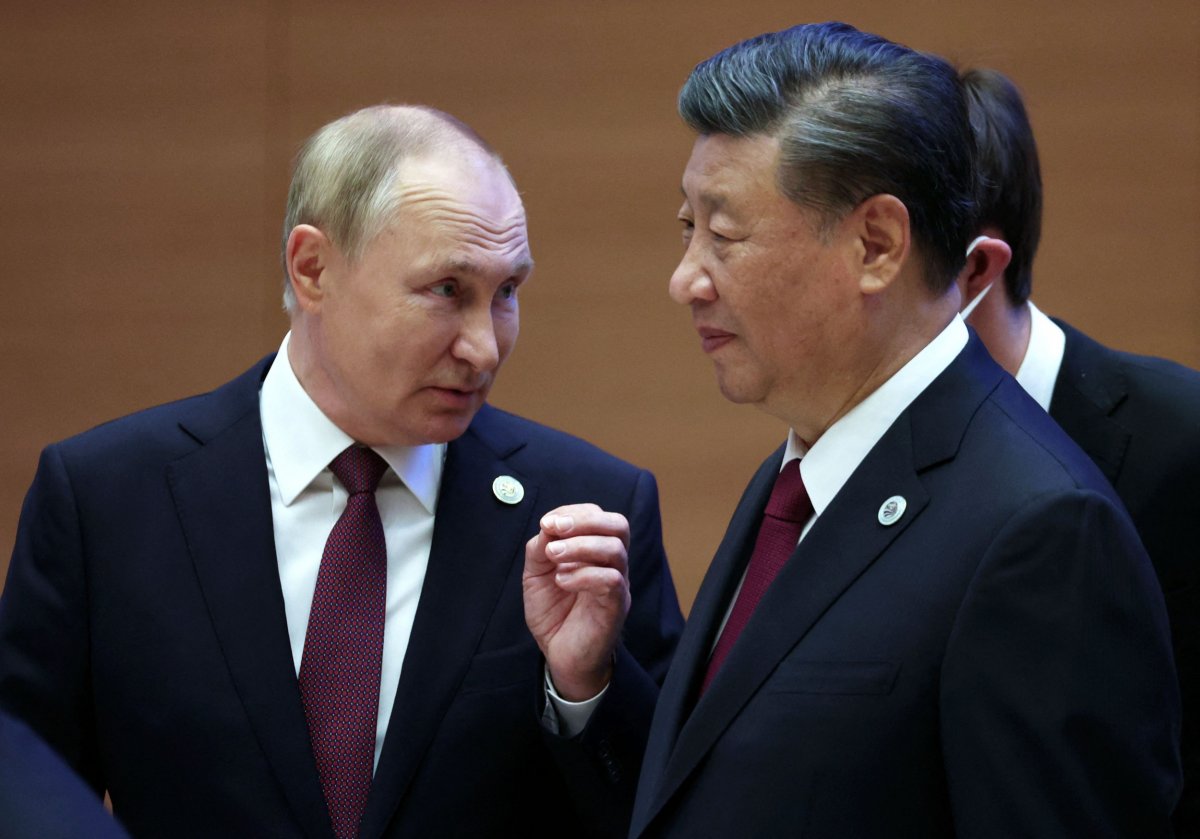"We call on all parties to achieve a ceasefire and stop the war through dialogue and negotiation, and to find a solution that takes into account the legitimate security concerns of all parties as soon as possible," said Chinese Foreign Ministry Spokesperson Wang Wenbin on the 21st of this month. "We also hope the international community will create the conditions and space for this."
Wang Yi, China's foreign minister, repeated the call for negotiations. He did that in his United Nations General Assembly speech on the 24th, when he urged Ukraine and Russia to reach a settlement to "keep the crisis from spilling over."
Western analysts say Beijing's promotion of talks shows that China is trying to distance itself from Vladimir Putin's failing effort to annex Ukraine. That interpretation is undoubtedly incorrect. A more accurate view is that the Chinese regime is trying to rescue Russia.
As an initial matter, China's leaders do not believe Ukraine has "legitimate security concerns." That phrase, in Chinese diplomatic lingo, refers to Russia's ambitions. In March, Chinese ruler Xi Jinping made it clear that his "balanced, effective, and sustainable European security framework" did not include Ukraine.
China has gone all-in on Russia's war effort. On the 9th of this month, Li Zhanshu, China's third-ranked leader, voiced Beijing's full endorsement of the Kremlin. Li's comments, made while he was in Moscow, went beyond previous official Chinese assertions of backing for the war.
Xi, while meeting Putin for the 39th time since becoming Chinese supremo, confirmed Li's full-throated endorsement. On the 15th, he affirmed Beijing's backing for Russia's "core interests."
These expressions of support, made while the Russian army was suffering humiliating losses in Eastern Ukraine, show real commitment.
In short, China's calls for negotiations appear to be an attempt to save its failing "no-limits" partner—the term comes from the Chinese-Russian 5,300-word joint statement of February 4—from military defeat and to preserve Russia's territorial gains in Eastern Ukraine.
Others have also suggested the international community broker peace. Take Henry Kissinger. "Negotiations need to begin in the next two months before it creates upheavals and tensions that will not be easily overcome," he said on May 23 at the World Economic Forum at Davos. "Ideally, the dividing line should be a return to the status quo ante."
Kissinger, in substance, said he was in favor of preserving Russia's control of Crimea, seized in 2014, and Ukraine's eastern regions of Luhansk and Donetsk.

Kissinger's justification for such a craven position? "Pursuing the war beyond that point," he argued, "would not be about the freedom of Ukraine, but a new war against Russia itself."
Such a "new war" is necessary, however. The only enduring solution requires the international community forcing Moscow to abandon Eastern Ukraine and Crimea. Any other outcome only defers conflict, as Putin will surely try to grab more of Ukraine when he has the ability to do so. After all, he believes Ukraine is not a legitimate state, as he noted on February 21.
And as Mykhailo Podolyak, an advisor to Ukrainian President Volodymyr Zelensky, stated in a May 21 tweet, "any concession to Russia is not a path to peace, but a war postponed for several years."
As important as it is to stop Russia once and for all, it is even more important to stop China. What Kissinger fails to understand is that anything short of a complete expulsion of Russia from Ukraine will suggest to Xi Jinping that there can be a payoff for aggression and intimidation.
Beijing, of course, does not need any more incentives to engage in belligerent acts. It is already pressuring, among others, India, the Philippines, Japan, and Taiwan, and it is engaging in provocative intercepts of ships and planes in the global commons, which threatens the entire international community.
Many argue that expelling Russia from all Ukrainian territory would be exceedingly dangerous. They are certainly correct in this regard.
But claiming an option is dangerous is not these days a serious comment. The global situation has deteriorated to the point where all options going forward are exceedingly dangerous, which just shows how perilous the world has now become.
A younger Kissinger would understand what is at stake at this time. After all, he wrote this in 1957 in A World Restored: Metternich, Castlereagh and the Problems of Peace, 1812-22:
Whenever peace—conceived as the avoidance of war—has been the primary objective of a power or a group of powers, the international system has been at the mercy of the most ruthless member of the international community. Whenever the international order has acknowledged that certain principles could not be compromised even for the sake of peace, stability based on an equilibrium of forces was at least conceivable.
Gordon G. Chang is the author of The Coming Collapse of China. Follow him on Twitter: @GordonGChang.
The views expressed in this article are the writer's own.
Uncommon Knowledge
Newsweek is committed to challenging conventional wisdom and finding connections in the search for common ground.
Newsweek is committed to challenging conventional wisdom and finding connections in the search for common ground.
About the writer
To read how Newsweek uses AI as a newsroom tool, Click here.








